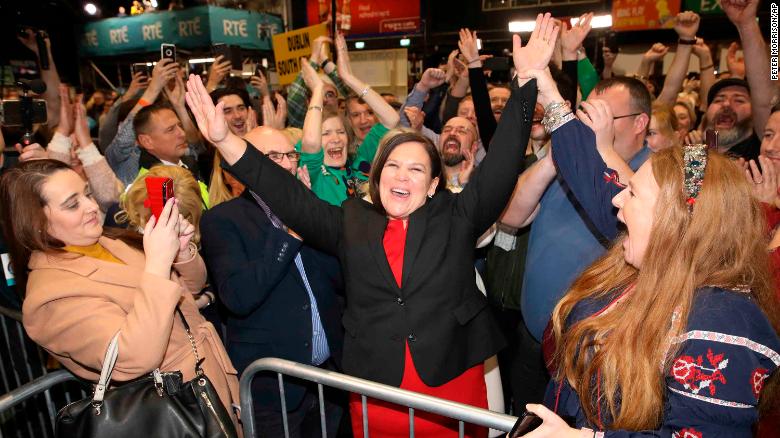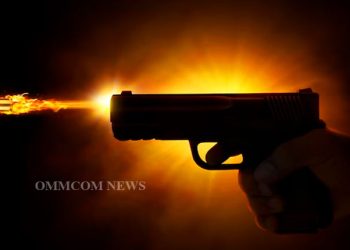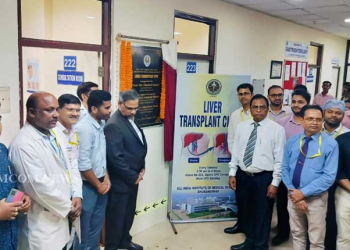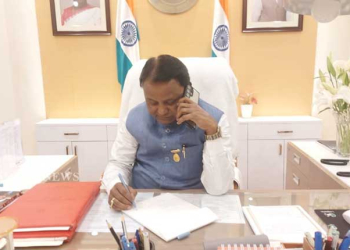Dublin: Sinn Fein, the Irish nationalist party, has been declared the winner in the elections for the 90-seat devolved Assembly in Northern Ireland.
It means Sinn Fein leader Michelle O’Neill will replace the Democratic Unionist Party (DUP) leader Jeffrey Donaldson as First Minister, effectively the devolved Parliament’s Prime Minister, reports Xinhua news agency.
Both were re-elected in Thursday’s election.
Victory for Sinn Fein came when the party reached an unbeatable 27 seats in the Assembly late Saturday night.
It is the first time since the partition of the island of Ireland in 1921 that the unionists have been pushed into second place in what is a historic victory for the Irish nationalists.
O’Neill described it as a defining moment for Northern Ireland, which is still part of the United Kingdom.
“Today ushers in a new era which I believe presents us all with an opportunity to reimagine relationships in this society on the basis of fairness, on the basis of equality and on the basis of social justice,” she said in a speech at the election count.
Professor Jon Tonge from the University of Liverpool, a renowned expert on Irish politics, told Xinhua that the result was a seismic triumph for Sinn Fein, which he said was once regarded as a pariah party.
“Sinn Fein has become the largest party in a state which had a built-in unionist majority.”
Tonge said Sinn Fein’s advance will not itself bring about a referendum on a united Ireland.
But he added: “If its success in Northern Ireland is combined with the party becoming the largest south of the border in the Irish republic, a likely prospect, it increases the pressure for such a vote on a united Ireland.”
Political commentators said the success of Sinn Fein has brought closer the prospect of a referendum for Irish Unity, one of the long-standing aims of Sinn Fein.
Nationally, Sinn Fein has always demanded reunification since the partition of the island by the British in the 1920s.
During The Troubles, the Northern Ireland conflict from about 1968 to 1998, Sinn Fein was referred to as the political wing of the pro-unity Irish Republican Army (IRA).
Under the Northern Ireland peace accord signed in 1998, decades-long The Troubles came to an end and a system of power sharing was introduced.
This has meant the leader of the main party takes on the role of First Minister, and the winner of the second party name the Deputy First Minister.
Under power sharing, if one of the two main leaders refuses to take part in the assembly or its executive, it cannot function. Donaldson said a decision will be made in a few days on whether the DUP will take up the number 2 role.
The DUP indicated earlier it would not sit in the assembly, citing its opposition to the Northern Ireland protocol agreement which has seen a trade border down the Irish Sea as part of a Brexit deal between the British government and the European Union (EU) to prevent a hard border on the island of Ireland.
Oliver Dowden, chair of the British ruling Conservative Party, told local media on Saturday that the British government will honour a constitutional obligation to hold a border poll on the future of Northern Ireland if there is a sustained majority in favour of unification.
Dowden, however, insisted it was too early to start talking about a referendum on Northern Ireland’s future.
(IANS)




















